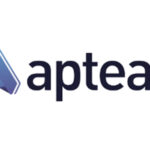
Aptean partners with voxtron to increase presence in the Middle East
December 21, 2023
Voxtron secures Microsoft Gold partner accreditation
December 21, 2023The most significant question facing organizations today is what technology can best support their agents – regardless of whether they are deployed in an office, located remotely, or working in a hybrid (office/remote) model.
The key to effectively using technology is to improve agent tools and resources to help them do their jobs better while removing the issues that impact their engagement and productivity.
The best way to start is by talking to your agents, you’ll be able to focus your analysis on improving bad processes and eliminating the issues impeding agent success while working to determine where and which technologies will have the most significant impact.
Technology Can Make the Workplace More Appealing and Interesting while Enhancing Performance
Getting Started: many technologies can improve the overall agent experience, and as always, starting with the basics has proven to be the best approach. To begin with, foundational technologies include delivering (and continuously optimizing) context-sensitive prompting in your IVR, integrating your contact center with your CRM to facilitate the development of first-party data, and implementing and enhancing knowledge management systems to improve your self-service capabilities.
Then, recommended next steps include using Artificial Intelligence (AI) to analyze all touchpoints along the customer journey – this will provide agents with all the information they need to better understand who they are dealing with and what historical issues have been experienced. Providing agents with access to all relevant customer information will generate a higher level of comfort with the situation and greater confidence that they can resolve it, enabling them to focus on building a rapport with that customer. AI also enables organizations to analyze agent/customer conversations across every channel, either in real-time or at a later date, facilitating the development of issue-appropriate or customer-specific approaches while enabling supervisions to provide personalized agent feedback and coaching, helping them to build their skills, confidence, and engagement, whenever required.
One very significant element in improving agent-customer engagement is contingent on the organization committing to – and ensuring that it is carried through – consistent, equitable, regular, and unbiased agent evaluations, regardless of where the agents are deployed. In the office, working remote, or in a hybrid environment, whether locally or globally. With the reality of contact center call volumes increasing exponentially over the last 2 years, supervisors have not been able to evaluate the industry norm of 5% of agent calls for script adherence, regulatory requirements, customer empathy, and overall call professionalism. Yet, organizations can now easily correct that situation, ensuring that 100% of calls are evaluated, scored, indexed, and attributed to the individual agent. Research has shown that equitable evaluations drive the highest level of agent satisfaction across all possible criteria.
Ensure Technology Enhances Existing Workflows
A key imperative is to ensure that the technologies chosen enhance existing workflows and facilitate their incremental improvement and optimization. A rip and replace approach is exceedingly disruptive and negatively impacts productivity and overall employee/agent engagement. This has been especially important over the last year with the migration to remote or hybrid work environments where “the workplace” is no longer a specific or centralized office location. A good user experience is essential to increasing job appeal, as well as improving productivity and performance.
Start by ensuring that agents can access all the information and systems they need from a single, intuitive interface that provides all essential collaboration capabilities with minimal clicks. With the growth of unified communications platforms such as Microsoft Teams or Enghouse UC displacing standalone PBX’s or on-premise UC solutions, they enable greater collaboration, not only within the contact center but also with the wider business. Unified Communications (UC) or UC as a Service (UCaaS) provides instantaneous communications across the organization while minimizing delays. Subject Matter Experts (SME’s), technical support, key decision-makers, or departmental executives can provide the help needed, as required, no matter where they may be at that moment. As an added benefit, all online interactions are recorded, simplifying follow-ups or confirmations, thereby ensuring the protection of all parties in that exchange.
Empowering Agents and Redefine Performance KPIs
Technology impacts your existing KPIs. It’s important to determine if your KPIs are measuring the right results. Most organizations are moving away from simple metrics such as average handling time (AHT) because these don’t consider the impact of self-service and simple queries being deflected to other channels. Deploying advanced technology in your contact center means that queries that are routed to skilled agents are more complex and will take more time to handle.
Revised KPI’s: Consider new KPIs that focus on the outcomes you want to achieve, such as Net Promoter Score (NPS), Customer Satisfaction (CSaT), or customer retention – the aim should be on improving results rather than the number of interactions handled. Quality management solutions can then be used to check the call outcomes against your KPIs and highlight any areas for coaching or improvement.
Empowering agents for success will help them to better engage with customers, listen to their needs and provide the right solution, without having to ask a supervisor or arrange to call back. As an added benefit, First Call Resolution (FCR) stats will improve, which makes customers and agents happier.




